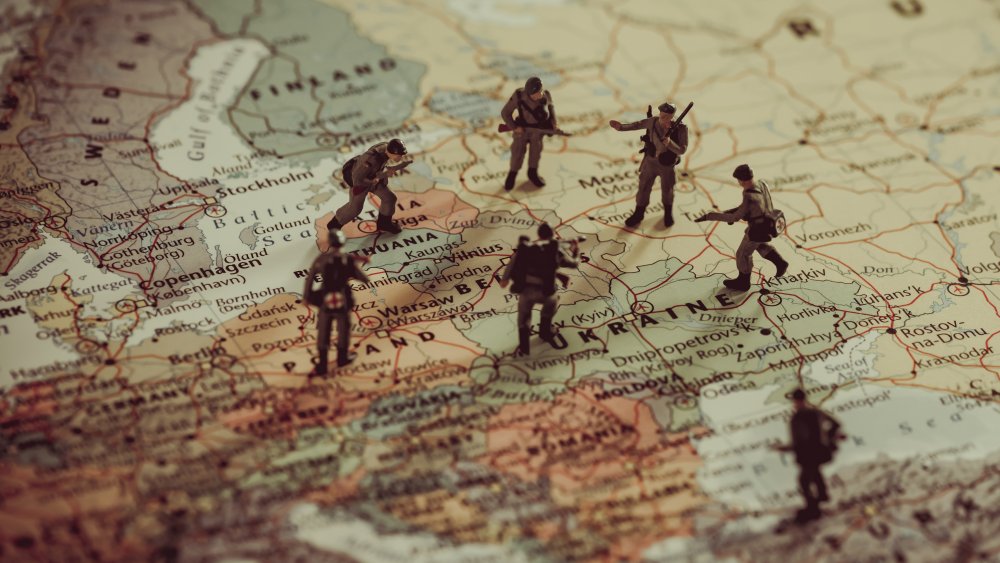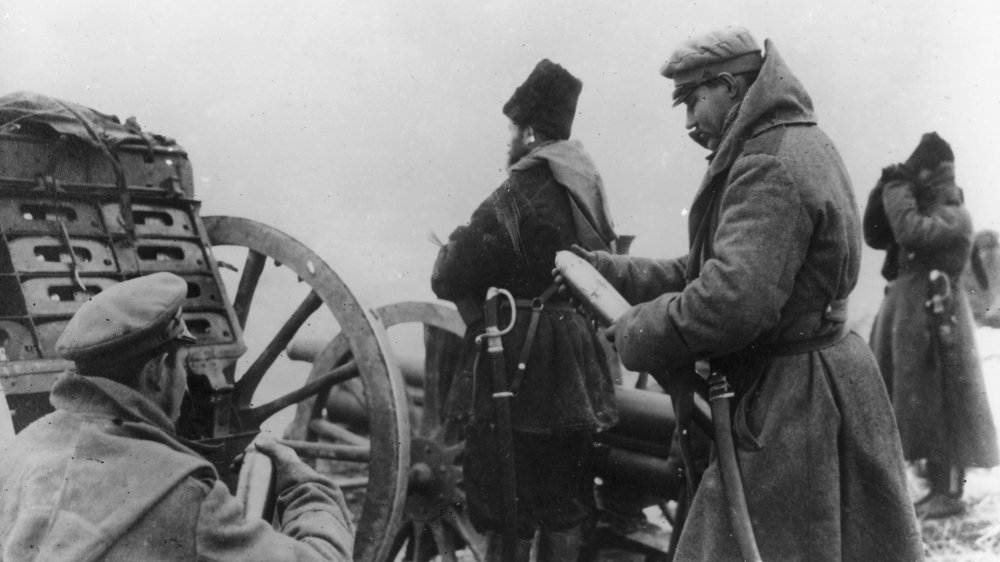The Attack Of The Dead Men
The reason few linger on Russia's contribution to World War I is that for the first two years, the troops were under-equipped and led by a military leadership unready to face warfare's modernity. Afterward, the Russian Revolution and its various fallouts captured their entire attention. Before they redirected most of their energy inwards, however, they managed to snag for themselves a corner of internet history with a counterattack later to be remembered as the Attack of the Dead Men.
On July 24, 1915, the conditions were finally ready for an attack by Germany's Field Marshal Paul von Hindenberg. For the third time, the German army tried to take Osoweic Fortress, a Russian stronghold near the German-Russian border. After 10 days, the wind had turned, blowing from the German position over the Russian defenses, making the situation perfect for one of the deadliest innovations of the war: chlorine gas.
The Russian army was poorly equipped. "The fortress was not prepared at all to withstand a gas attack," Sergey Khmelkov, a Russian survivor of the battle, wrote, which Beyond Russia offers in a translated form. "There were no plans in place, no resources to collectively and individually protect the garrison, and the gas masks sent to them were of little use." After waiting a bit longer to ensure the Russians really choked on the gas, the properly masked Germans advanced to wipe out any remaining resistance.
The charge
As the Germans easily overwhelmed the defense's first line, a blood-sputtering Second Lieutenant Vladimir Kotlinsky led a final counterattack by the surviving Russians. The German troops saw their enemy, who should have asphyxiated already, moving toward them. The scene is described by Russian historians for European Researcher: The Russians, barely able to walk, engaged in a bayonet assault. They bore "traces of chemical burns on their faces, wrapped up in rags, they coughed up blood, spitting out pieces of lungs" onto their bloody garments.
For the Russian perspective, Russia Beyond quotes an unidentified survivor's recount from Pskov Life: "I can't describe the anger and fury that gripped our soldiers as they headed towards their poisoners, the Germans. Heavy rifles, machine guns, heavy shrapnel could not stop the onslaught of frenzied soldiers."
Faced with the approach of this horrifying zombie-like army, the Germans broke, suffering severe casualties and giving the Russians victory. Kotlinksy succumbed to his injuries later that day. In total, the Russians lost 30 troops. This victory, though, was over shadowed by the breaking of Russian troops at the war's front lines. On August 22, they demolished Osoweic Fortress.

